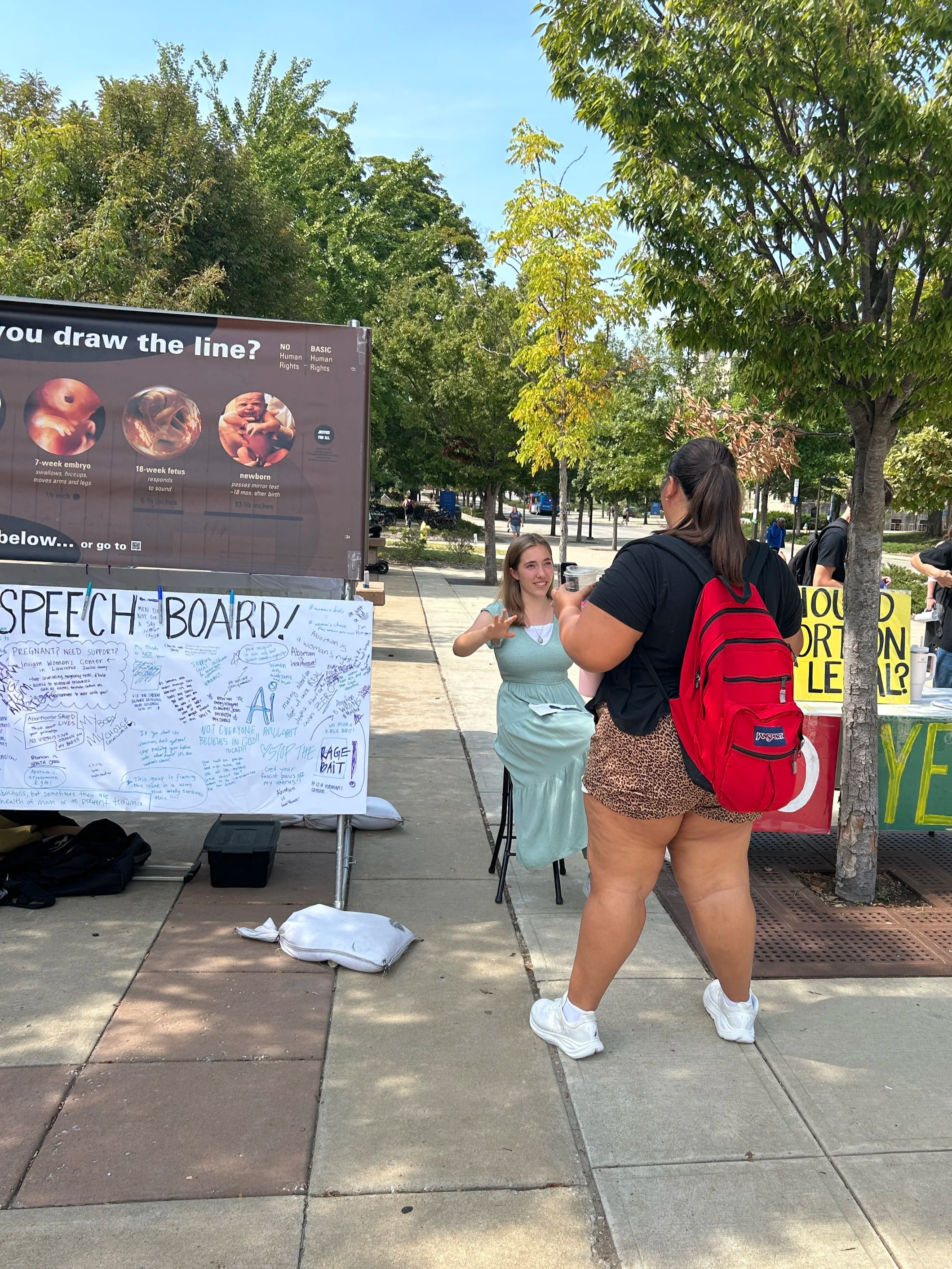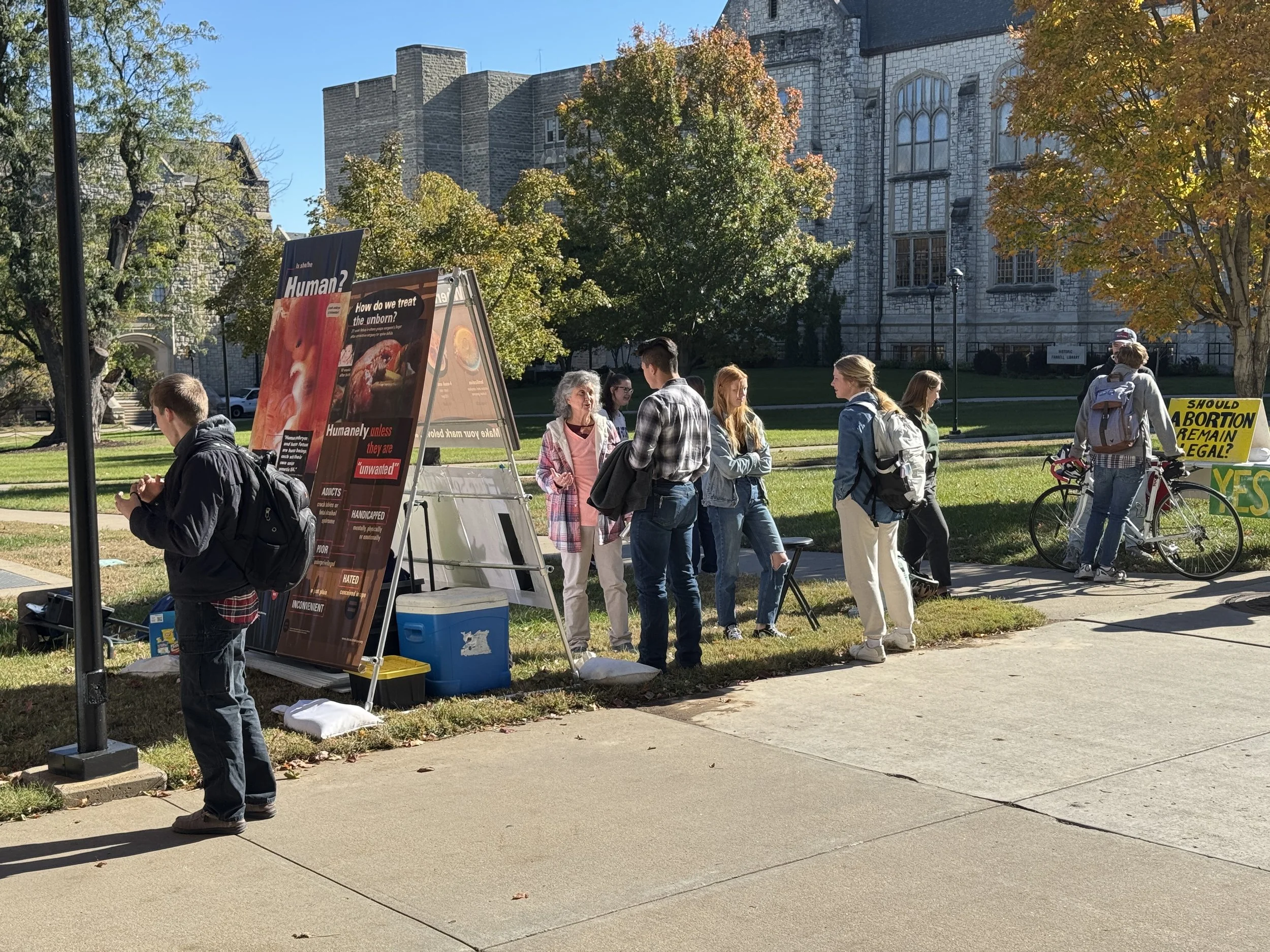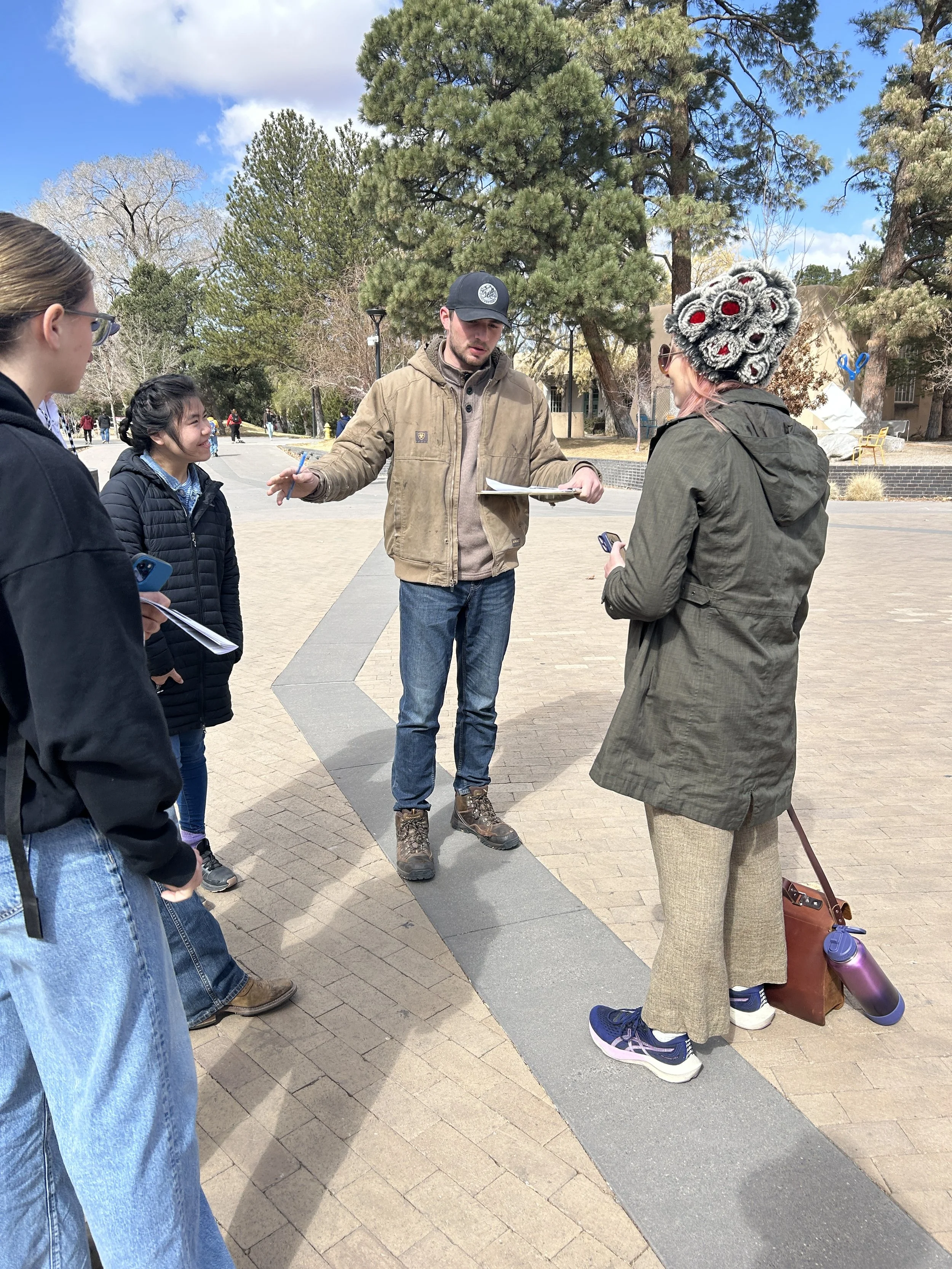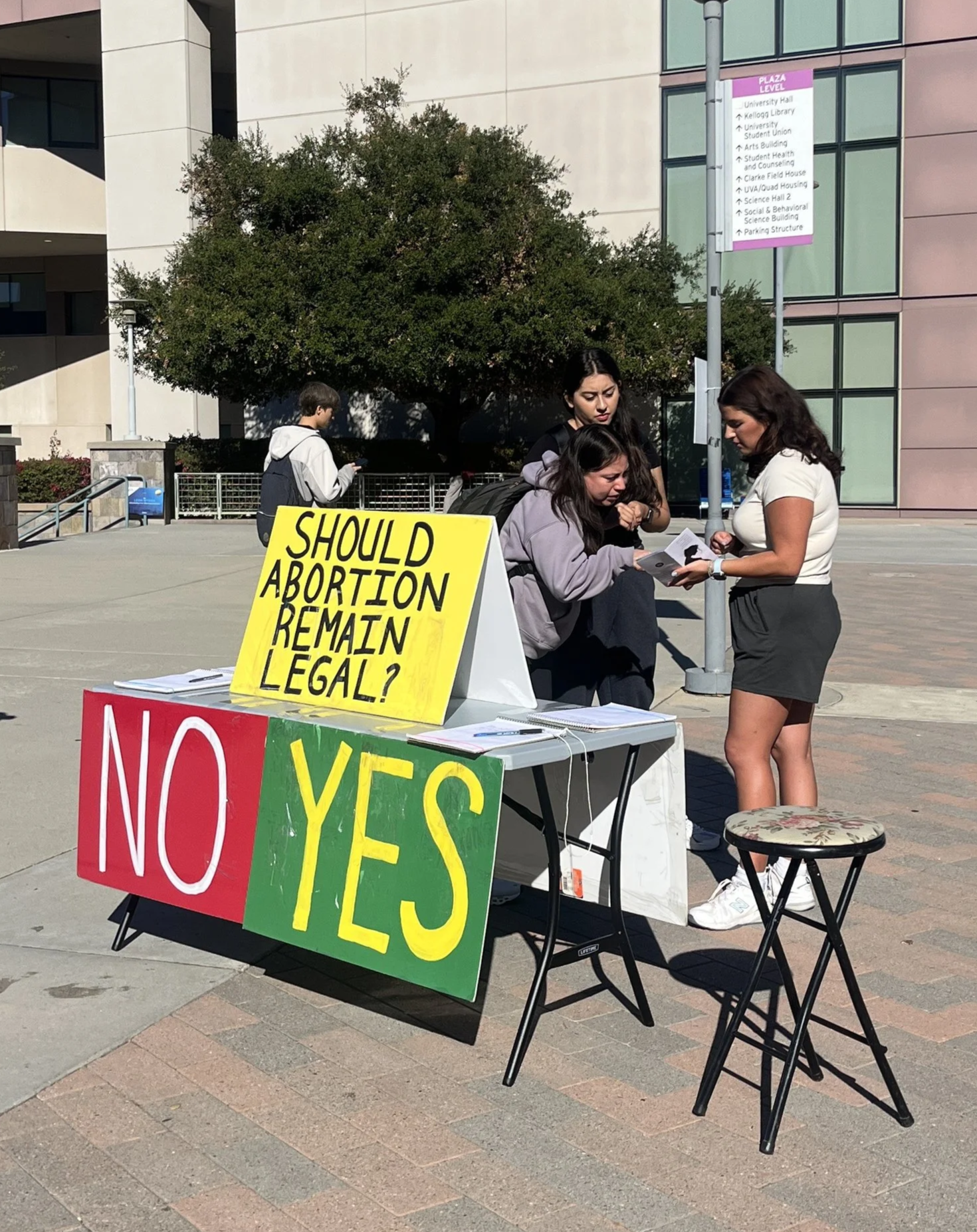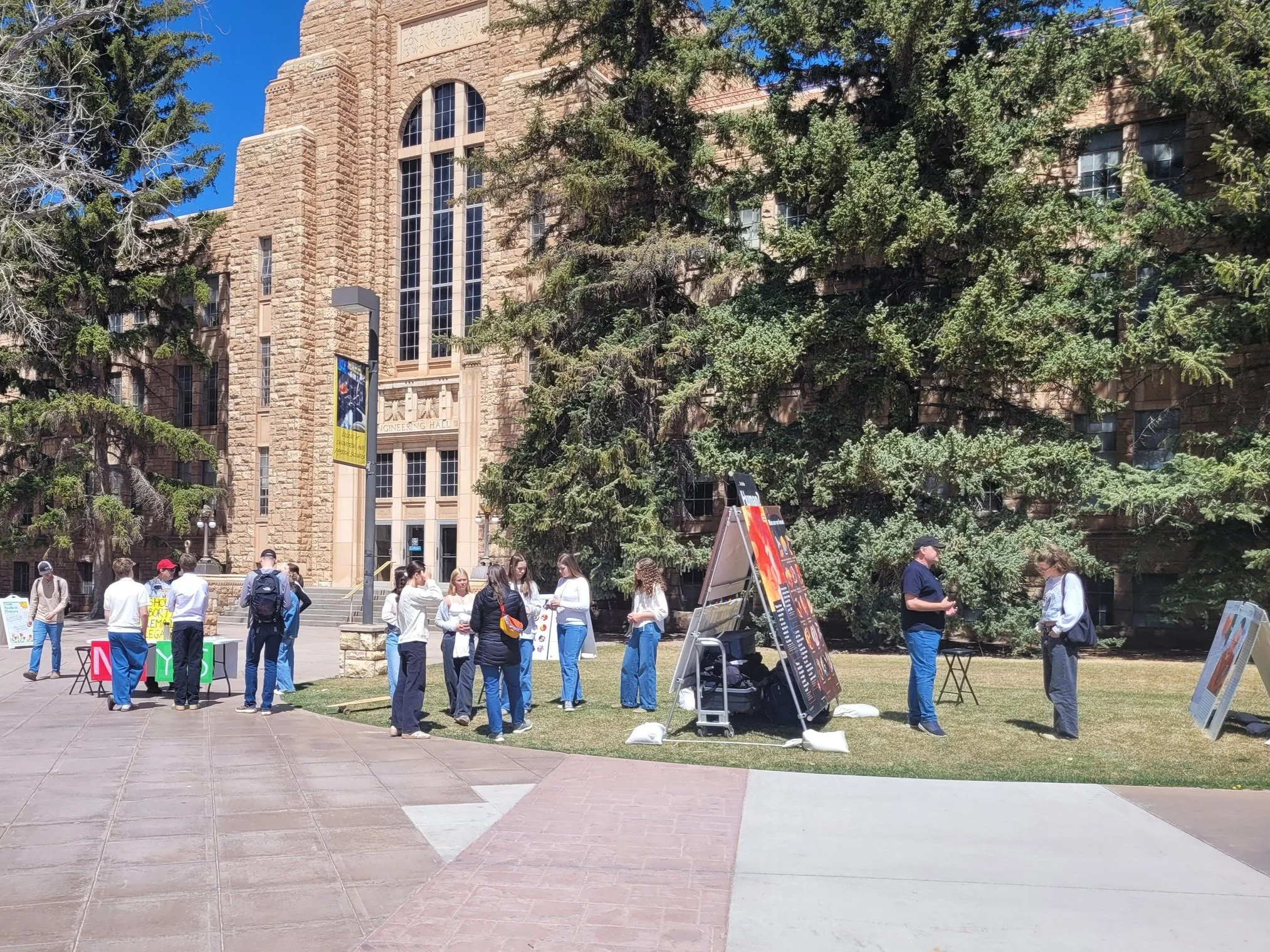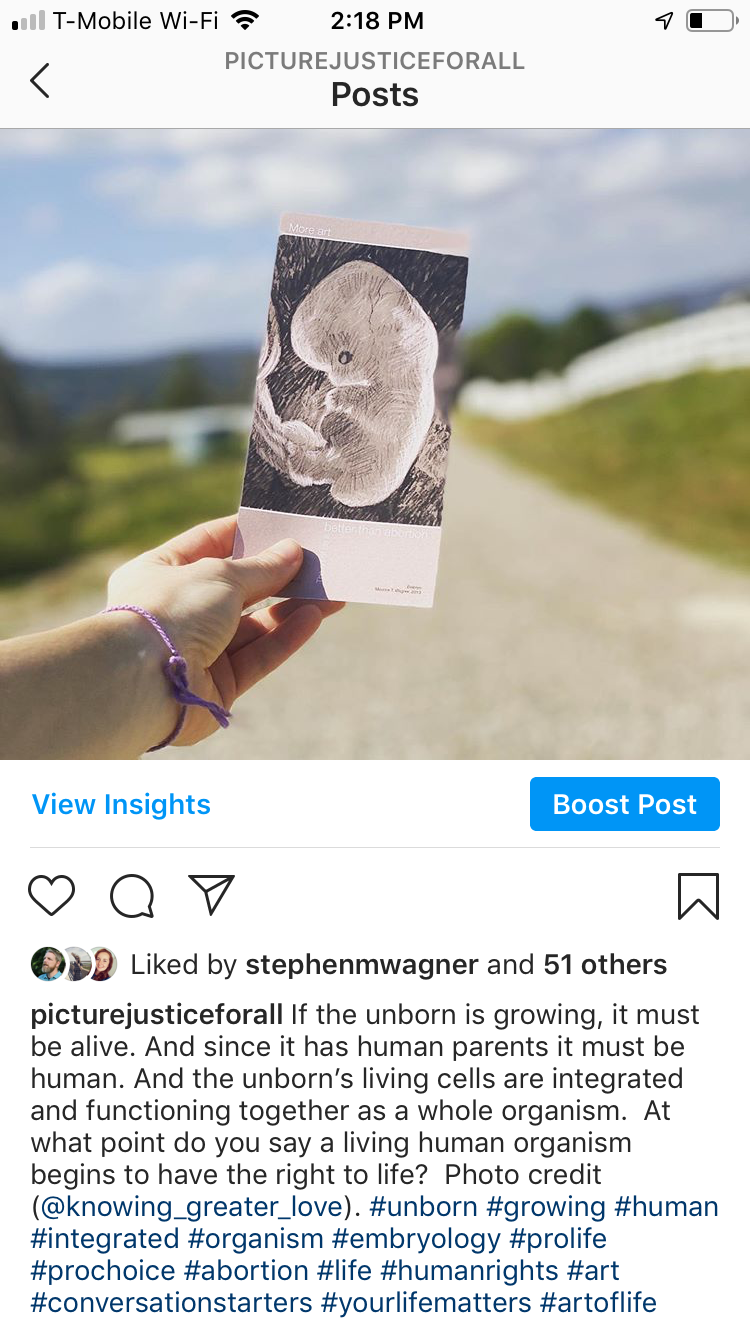Impact Report, July 2025
In this Impact Report, Kaitlyn Donihue shares a conversation she had in April at our first-ever outreach on the University of Wyoming campus. Kaitlyn’s conversation with “Ian” illustrates what’s typical of many pro-choice people we encounter, that they are open-minded and ready to think about the case against abortion, especially if it is clearly articulated. This is why we’re eager for every Christian to participate in JFA’s “Seat Work and Feet Work” training program. We could change more minds if more of us were trained to do what Kaitlyn made look effortless here: ask good questions and give reasons that are easy to understand. Thanks for partnering with us to help us bring this training to hundreds more in 2025!
-Steve Wagner, Executive Director
Many of us hear hostile and extreme pro-choice perspectives in the media and assume that all pro-choice people are equally hostile and extreme. In reality, many pro-choice people are not hostile or extreme at all. Many are open to conversations. Many are even persuadable. As I found in one conversation recently, many have never heard a clear, reasonable articulation of the pro-life view, and if they did hear it, they might be willing to rethink their own position.
In April our team was at the University of Wyoming talking to students. It was cold and windy, but we still had many wonderful conversations. I was standing by one of our signs that shows images of unborn children at different stages of development when “Ian” walked up. I struck up a conversation with him, and it went something like the following:
Kaitlyn (right) interacts with a student during JFA’s Univ. of Wyoming outreach.
Kaitlyn: Do you have thoughts on this issue?
Ian: Yeah, everybody does.
Kaitlyn: That’s so true. What are your thoughts?
Ian: I don’t think the government should have a say in healthcare.
Kaitlyn: I’m definitely hearing you. Healthcare is really important, and our rights to get the healthcare we need are important. Do you think abortion should be legal for all nine months of pregnancy or just a window of time?
Ian: It’s really complicated, and there’s a lot more than just timing to consider.
Kaitlyn: I agree that it’s complicated. It’s a tough issue for sure.
Ian: Yeah.
Kaitlyn: Do you think the unborn is a human being at any point in pregnancy?
Ian: I don’t know. I haven’t really looked into the science.
Kristine (left) creates dialogue at JFA’s Univ. of Wyoming outreach.
Kaitlyn: Would you be open if I share my understanding of what biology teaches?
Ian: Sure, go ahead.
During JFA’s Wyoming seminar, Jeremy (left) and Kaitlyn (center) illustrated with a dramatic dialogue the tool Kristine (right) was teaching.
““If the unborn are human beings, do you think we should protect them?””
Kaitlyn: According to biology, there are three characteristics of living things. Living things grow through cellular reproduction, metabolize food for energy, and respond to stimuli. We know something is alive if it is doing all of those things. The unborn is doing all of those things at every stage of development so we know they are alive. We also know they are human because they have human DNA. As soon as sperm and egg come together, both cease to exist and a new genetically distinct human organism comes into existence. That human organism is different from us in the same way an infant is different from us. An infant is less developed than you and me but we would never say she is less human. In the same way, the unborn are less developed, but according to embryologists they are full human organisms just like you and me. What are your thoughts on that?
Ian: I’ve never really heard that perspective before. That’s interesting.
Kaitlyn: If the unborn are human beings, do you think we should protect them?
Ian: Yeah, I believe every human has value and deserves protection. I’ve just never looked into the biology before.
Our staff and volunteers enjoyed creating numerous conversations at the University of Wyoming.
We talked a little more before Ian had to leave, but his comment that he had never heard the pro-life perspective laid out that way was a good reminder. As pro-life people, its easy to assume that people who reject our perspective at least understand it. Many reject it, however, because they don’t understand it. When we take the time to share it with them, they might be willing to think about it and even one day embrace it themselves. This is true of the abortion issue and the gospel. This is why conversations are so important and often so life-changing.
Thank you for supporting our work and helping to make these kinds of conversations possible!

